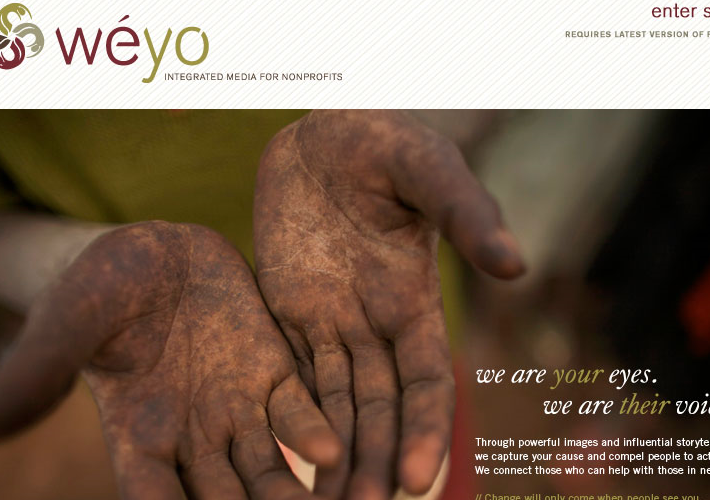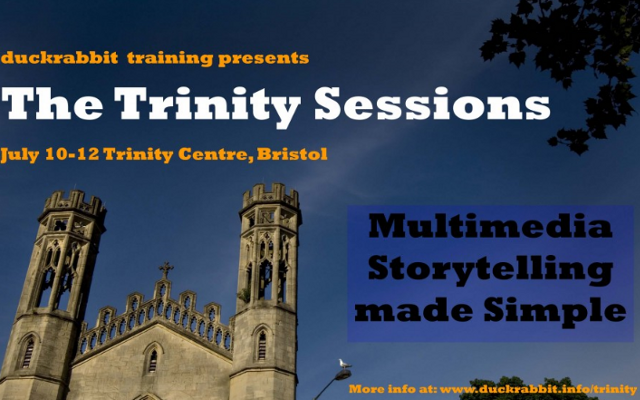This is the fourth post in a series of six blog posts by Adam Westbrook, each with six tips for the next generation of freelance multimedia journalists, republished here with permission.
Follow the series at this link or visit Adam’s blog.
Business
While the news industry is still in an uncertain and uncomfortable state of flux, one certainty has already emerged: journalists can no-longer just be journalists – they must be entrepreneurs too. It’s the difference between the ‘passive’ freelancer who writes to a few editors and waits for the work to come to them, and the ‘active’ freelancer who runs themselves as a mini-business.
Until j-schools start adding business skills to the curriculum this will be something we’re all going to have to teach ourselves.
1) Diversify
If you went into journalism to become a TV news reporter, and just a TV news reporter, the sad news is those days are over. As are the days of being paid to stay in nice hotels in foreign lands drinking cocktails.
In order to maximise your income, you will need to diversify your skills base. That means selling a range of skills and service, and not just journalism-related ones. I know radio journalists who have a nice sideline designing websites; video journalists who run training courses; and photojournalists who work for non-profits.
Training can often be the most lucrative of these – but only consider this if you really know what you’re doing!
Diversify too in your client base. Pity the news-snob who just pitches to the New York Times and The Guardian. The digital revolution means there are more online-only news outfits and they can be easier to pitch to.
Freelance science journalist Angela Saini offered me this advice recently: “I think it’s almost impossible to survive right now unless you freelance in more than one medium – so as well as doing VJ work, you may have to do radio and print too.”
If you’re a radio journalist you won’t survive as a just a radio journalist. Pitch for video, online, print… everything! Profiling multimedia journalist Jason Motlagh, David Westphal notes:
“Motlagh doesn’t just write stories. He shoots still photos. He shoots and edits video. He does audio. He blogs. He narrates slide shows. And because he does all of those things, he says, he has a huge advantage over freelance foreign correspondents working in a single medium.
“Having multiple media skills is ‘still unusual’, he said. ‘There aren’t a whole lot of people yet who have gotten up to speed. If you are, you can make clients an offer they can’t refuse.'”
2) Find new markets
The entrepreneur, although a business profession, requires a lot of creativity. Just ask Richard Branson. From what I’ve gauged you have to be constantly brainstorming new markets and potential clients. And thinking outside the box reaps rewards.
Career evangelist and author of the popular new book ‘Career Renegade: How to Make a Great Living Doing What You Love’ Jonathan Fields explores how to sidestep traditional career paths to forge your own unique way. He talks about ‘moving beyond the mainstream’ and finding new markets in six different places:
- finding a hungrier market
- finding the most lucrative micro-markets
- exploiting gaps in information
- exploiting gaps in education
- exploiting gaps in gear or merchandise
- exploiting gaps in community
The first two are about digging deeper into the industry and possibly connecting two unrelated ones. A great example comes from a friend of mine, filmmaker Oliver Harrison. He loves cooking, and loves making films but couldn’t find a way to make any money out of either. After a lot of searching, he and business partner Simon Horniblow started talking to universities – and combined the two. They now run studentcooking.tv a very successful online cookery website for students. Would you think to do that? Think outside the box!
To Jonathan Fields:
“In thinking about potential alternative markets, or trying to find smaller, more lucrative submarkets, think about fields, careers, jobs, or paths where the elements of what you love to do are valued, but in short supply. You are looking for a market where your passion leads to: differentiation, hunger [and] price availability.”
Be practical and realistic though: is there really a demand for your new idea?
Here are three examples of journalists who digged a bit deeper to find new markets:
Weyo found a new market in non-profits looking for quality storytelling
Journalist Martin Lewis exploited a gap in the market for impartial financial advice
Duckrabbit exploited a gap in education and produce training courses in photography and audio design
3) Bootstrapping
Bootstrapping means starting your freelance business with little or no cash. It means learning how to get things done for free – and most valuable of all – learning to be careful with money.
The great news is you don’t need any money to start out and market yourself. A website domain name will cost you a small amount. But social media means you can market your talents absolutely free (see the previous 6×6 on branding).
Josh Quittner, writing in Time Magazine uses the term LILO – to mean ‘a little in, a lot out’: “At no other time in recent history has it been easier or cheaper to start a new kind of company. Possibly a very profitable company,” he says. “[Bootstrapping] means your start-up is self-sustaining and can eek out enough profit to keep you alive on instant noodles while your business gains traction.”
If this recession has taught us anything, it’s that the best business is built from the bottom up, on the funds available (not borrowed).
4) Dealing with inflexible income
The biggest fear of starting a freelance career is money. Oh, and failure. ‘What if I don’t get any business?’ ‘How will I be sure I’ll always pay the rent?’ Truth is you won’t ever be sure, but that’s part of the thrill, right?
Still there are some things you can do to make the ebb and flow of freelance income a little more stable.
A good tip is to open up a separate bank account for your business earnings. Get Rich Slowly offers this advice: “Every month as you earn income, receive it (and leave it) in your business account. This is where you accumulate your cash. Because it’s in a high-yield account, it earns interest as it waits for you to use it.”
They recommend paying yourself a monthly salary from that business account – and leaving the rest for tax and other investments. The worst thing is to use the profits from a bumper month to pay for a bumper holiday, only to return to slim pickings.
But the best advice for living on an irregular income? Learn to live lite. Cut back on unnecessary spending wherever you can. Back to David Westphal profiling Jason Motlagh: “He lives modestly and accepts that there may be periods in his work where he’ll have to do something besides journalism to pay the bills.”
5) Find your creative time
Sure, for some freelancers the appeal of being your own boss is getting up at 10, watching some TV, doing some work, heading out on a night out without the guilt… and that might work for some. But the creative entrepreneur’s life is most likely to be a different one.
Just ask Mark McGuinness. He coaches creative freelancers and says for the successful ones, it ain’t no bohemian life:
“After scanning my diary and surveying the tasks in hand, I was faced with a depressing conclusion. I was going to have to get up early.”
He’s up at 6 in the morning, every morning, getting the crap out the way, like emails and the like. He then says he has several hours free to work solidly on creative tasks, before the rest of the world gets up and the phone starts ringing. Know when you are at your creative best and ring fence it, so you can’t get disturbed. It might be 6am, it might be midnight. Whatever, just make sure it’s protected.
“[W]hen I look back over the last couple of years, the time when I’ve created most value, for myself and my clients, has been those first hours of the day I’ve spent writing blog posts, essays, seminars and poems. It’s the creative wellspring that feeds into all the coaching, training, presenting and consulting I do when I’m face-to-face with clients.”
Treat it like a full time job too. If you can, work somewhere where you can commute to, or have some ringfenced office space at home. I recommend Mark’s excellent (and free) ebook ‘Time Management for Creative People‘.
6) Be lean, but don’t be mean
If you’re dreaming of going freelance, you might be thinking about holding off until after the recession. No need, says Leo Babauta 0f Zenhabits fame:
“This is the best time to start. This is a time when job security is low, so risks are actually lower. This is a time to be lean, which is the best idea for starting a business. This is the time when others are quitting – so you’ll have more room to succeed.
“And with social media and networking taking off, this is the easiest time to start a business, the easiest time to spread the word, the easiest time to distribute information and products and services.”
Starting now though won’t be easy – and you’ll need to be lean. But that is such an important skill to keep things afloat later on. Be sensible with your money, don’t overspend. It’s the thing the big companies can’t do, and the reason they lose money hand over fist. And don’t be mean: journalism is a small village – make friends and keep ’em!
The final word:
Journalism.co.uk offer some great practical advice for freelancers, which cover things like registering as self-employed, pitching for new work and managing finances. And if you’re still unsure of taking the entrepreneurial route, just watch this video.


